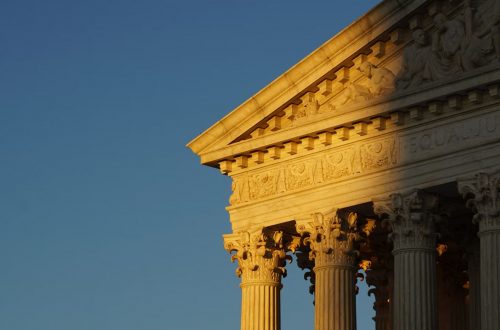Pastor Steven Bezner has published an article arguing “Against the Law Amendment” in which he urges messengers to to vote against the measure at the upcoming SBC meeting in Indianapolis. Interestingly, Bezner doesn’t really argue against what the amendment actually says but against what he perceives as ulterior motives on the part of those who support the amendment. He writes:
The Law Amendment seeks to clarify the extent of complementarian commitments within the SBC, answering this question: can a church remain in good standing with the Southern Baptist Convention if they have women staff members holding the title of pastor?
If the question stopped there, the conversation around the Law Amendment would be quite different. However, proponents of the Law Amendment have repeatedly claimed this also includes fulfilling ministerial functions of a pastor (with special emphasis given to women preaching to a mixed congregation), and is also extended to other titles they affiliate with “pastor,” such as ministers or directors.
Bezner agrees that women should not serve as pastors in a church. However, he opposes the Law amendment because he believes supporters would use it to exclude churches that have female staff members, even if they don’t have the title of pastor. He further objects to the Law amendment because he believes supporters will use it to police whether or not women are teaching men in a given church.
What are we to make of these objections to the Law amendment?
As I said above, these arguments really don’t touch the substance of the amendment but rather what Bezner thinks are the hidden motives of those who support it. I would urge messengers to remember that they are being asked to vote on the language of the amendment, not on the motives of other people who might be supporting it. The specific language of the amendment is this:
The Convention will only deem a church to be in friendly cooperation… which… Affirms, appoints, or employs only men as any kind of pastor or elder as qualified by Scripture.
The highlighted portion is the amendment, and it simply specifies (among other things) that the SBC wishes to cooperate only with those churches that call biblically qualified men as pastors. That’s it. It’s pretty straightforward. There is no provision in this amendment for policing churches with female staff members with other titles. Nor is there any provision in this amendment for policing whether women are teaching men in a given church. Those items are simply no part of this, and messengers are not being asked to vote on those things.
I support the Law amendment, and I spoke in favor of it on the floor of the SBC in New Orleans. I also know many supporters of the amendment, including the person who drafted the language of the amendment. I don’t know any supporter who wants to use the amendment as a pretext to police churches on matters not mentioned in the amendment. I have opinions on things like the roles of female staff members and women teaching men. Those are important issues that I’m certain all Southern Baptists have views about. But the fact of the matter is that neither of those things are mentioned in the amendment. The amendment really is about whether or not Southern Baptists wish to cooperate with churches that have female pastors. It’s not any more complicated than that.
Bezner writes:
Although I am willing to cooperate with [supporters of the Law amendment], it appears that supporters of the Law Amendment are not willing to cooperate with me, or by extension, any individual or church with similar convictions.
This mischaracterizes those of us who support the Law amendment. I have no problem cooperating with a church like Bezner describes in this article. I’m sure we would have disagreements about things, but that is to be expected within the SBC. He and I both agree with the BF&M that God only calls biblically qualified men to serve in the office of pastor. Both his church and my church only employ men in the office of pastor. I don’t know why we would need to part ways over whatever remaining differences we may have.
For these reasons, Bezner’s arguments against the amendment fail to persuade. There are no ulterior motives here. The amendment simply clarifies what our Constitution already provides—that Southern Baptists wish to cooperate with churches that call biblically qualified men as pastors. Anyone who can get on board with that ought to be able to support the Law amendment. I hope and pray that they will.






